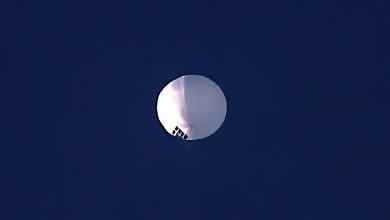Lithuania blames Russia for cyberattacks, citing threats over cargo restrictions.

Just days after Moscow threatened retaliation against Lithuania for placing restrictions on cargo traffic to the isolated Russian territory of Kaliningrad, computer hackers “linked to the Russian state” attacked dozens of Lithuanian government and private organizations, the Baltic nation’s deputy defense minister said.
The digital onslaught, which Lithuania warned would likely continue and even intensify in coming days, appeared to mark the beginning of what Russia said last week would be painful measures against the NATO nation for restricting the transportation of certain goods by rail to Kaliningrad.
The Russian exclave on the Baltic Sea is sandwiched between Lithuania and Poland, another NATO nation, hundreds of miles from the Russian mainland to the east.
NATO forces in Lithuania do not expect Moscow’s threats to result in military action because Russia’s armed forces are already severely stretched in Ukraine. But the sudden flare-up along a sensitive fault line between East and West has nonetheless put nerves on edge at a time of growing tensions between Russia and the American-led alliance.
Lithuania insists it has imposed no cargo ban and accuses Russia of lying.. It says it has restricted just 1 percent of the goods that pass by rail through Lithuanian territory in response to European Union sanctions over the Russian invasion of Ukraine.
Russia has nonetheless responded with fury, claiming that Europe had imposed an illegal “blockade” on its westernmost territory, formerly part of the German region of East Prussia and seized by Moscow at the end of World War II.
Margiris Abukevicius, Lithuania’s vice minister of national defense responsible for cybersecurity, said a wave of cyberattacks hit Lithuania’s state railway, airports, media companies and government ministries on Monday, in a coordinated barrage by hackers known to be associated with the Russian state. The assault involved mostly so-called distributed denial-of-service attacks, or DDoS, which involve hackers flooding the servers that run a target’s site with internet traffic until its falters or collapses under the load.
A Russian hacker group known as Killnet claimed responsibility for the attacks on its Telegram channel, demanding that Lithuanian authorities “immediately withdraw their decision to ban the transit of Russian cargo between Kaliningrad Region and Russia.” The group said it “is not affiliated with any law enforcement authorities” and mocked Lithuanian authorities as “stupid ducks” known for “making up garbage.”
During a visit to Kaliningrad last week, Nikolai P. Patrushev, the head of the Kremlin’s Security Council and one of President Vladimir V. Putin’s closest advisers, warned that Russia would “certainly respond to such hostile action.” He did not specify what Russia’s response would be, but said it would “have a serious negative impact on the population of Lithuania.”
The European Union has sought to defuse the crisis by tentatively proposing that Lithuania lift restrictions on transporting Russian goods to and from Kaliningrad, even those covered by European sanctions. But this has met with resistance from several countries in the bloc that do not want to relax measures in order to pacify Russia.
The European Commission, the E.U.’s executive arm, had been expected to issue precise guidelines on Monday about restrictions on cargo to Kaliningrad but it delayed its decision amid bickering between member nations.
Tomas Dapkus in Vilnius contributed reporting from Vilnius, Lithuania.





